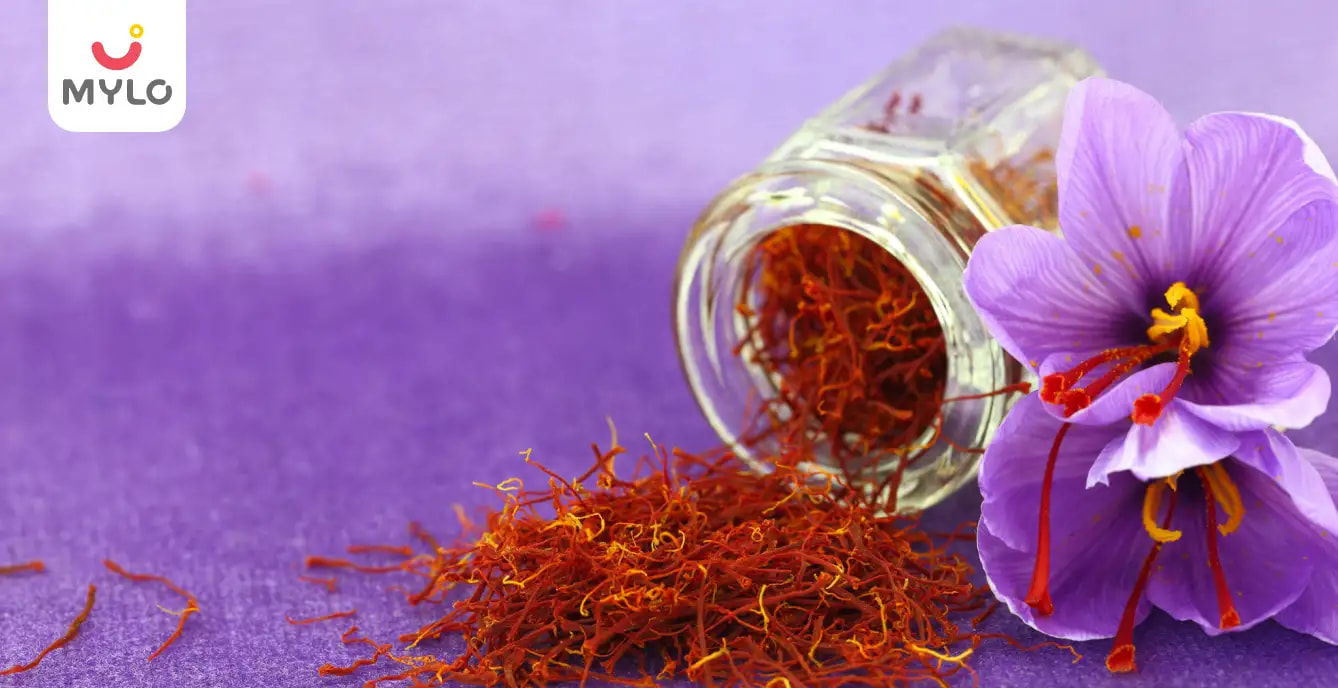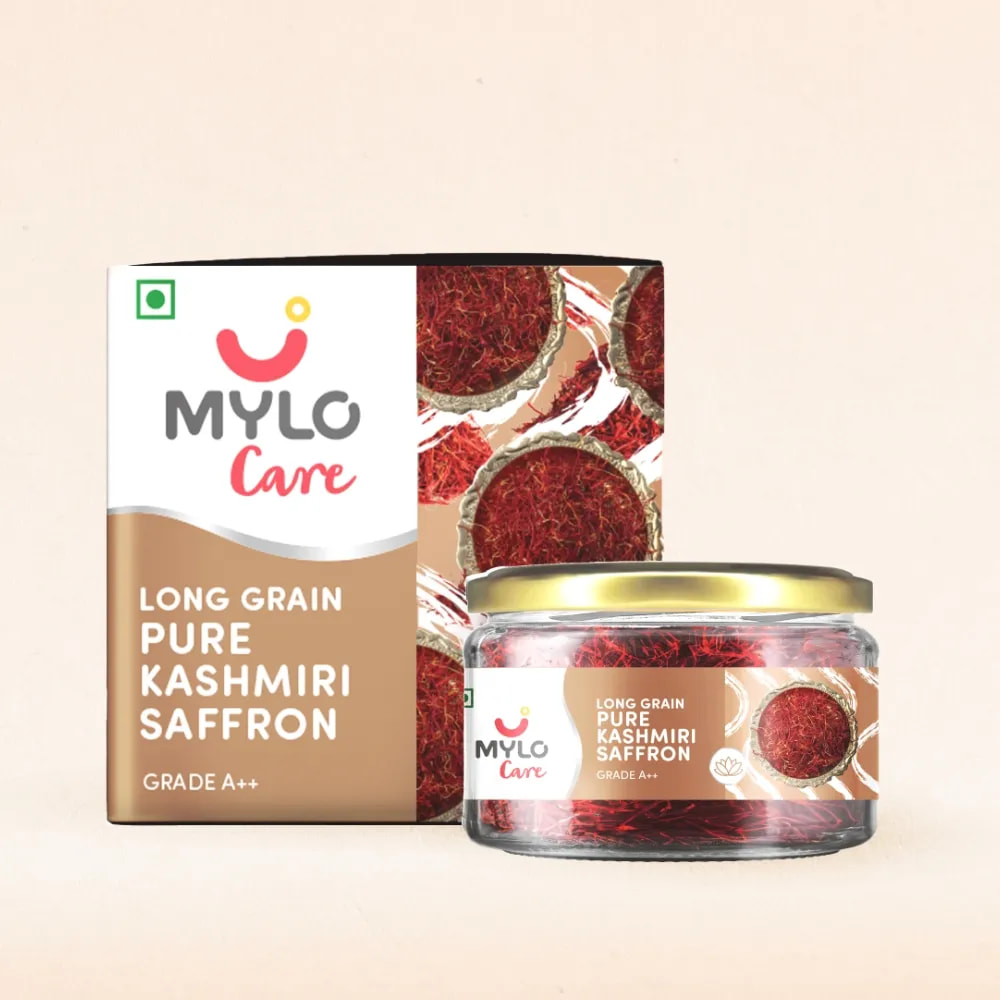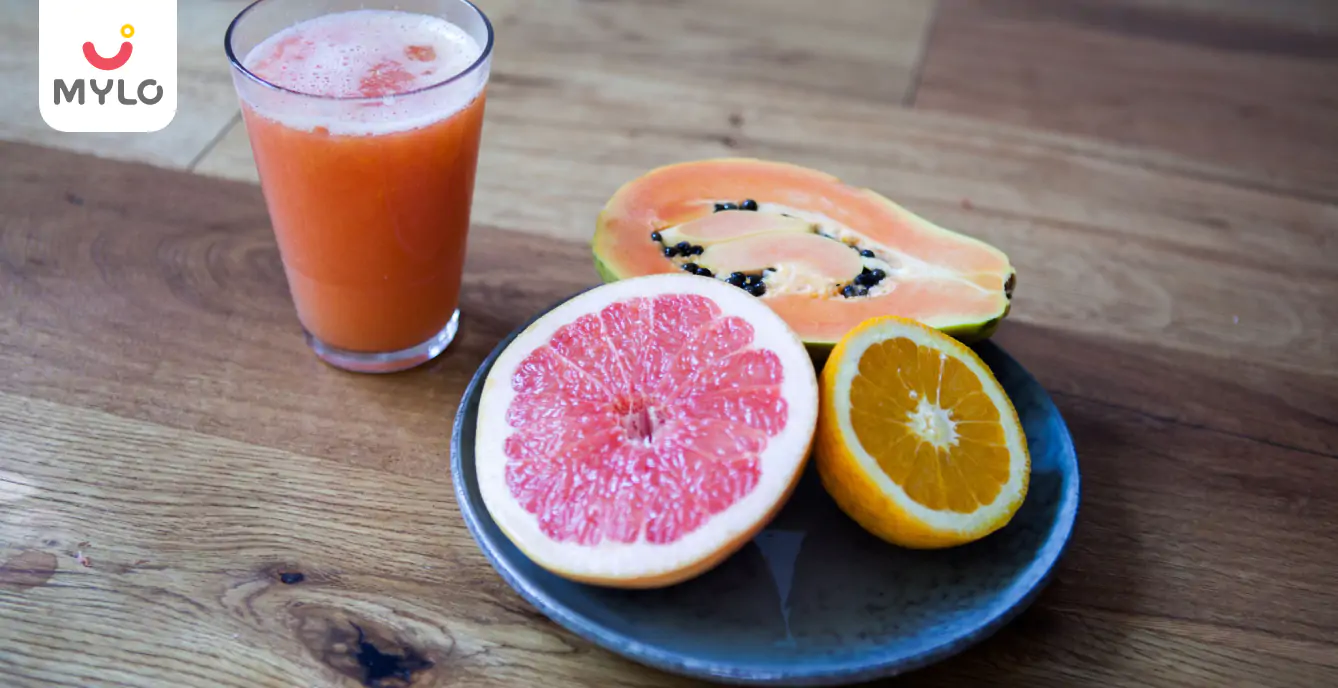Home

Diet & Nutrition

An Expecting Mother's Ultimate Guide to Consuming Saffron in Pregnancy
In this Article

Diet & Nutrition
An Expecting Mother's Ultimate Guide to Consuming Saffron in Pregnancy
Updated on 22 November 2023


Medically Reviewed by
Savita
Diabetes, Weight Loss, Thyroid, PCOS - Masters in Food & Nutrition
View Profile

Pregnancy is a time of joy, anticipation, and meticulous care. As an expecting mother, you're likely exploring various avenues to ensure the health and well-being of both yourself and your developing baby. One such avenue that has gained attention is the use of saffron in pregnancy.
In this article, we will delve into the safety, benefits, precautions, and proper usage of saffron during this crucial phase of your life.
Which Month is Considered Safe for Using Saffron in Pregnancy?
The use of saffron during pregnancy is a topic that requires careful consideration. Generally, it is advisable to start incorporating saffron into your diet during the second trimester. This is when the risk of miscarriage has significantly reduced, and the baby's organs are in the crucial stages of development.
What are the Benefits of Saffron During Pregnancy?
Saffron benefits in pregnancy include the following:
1. Rich in Nutrients
Saffron is a powerhouse of essential nutrients, including vitamins and minerals that are vital for the healthy development of your baby.
2. Aids Digestion
Saffron has been known to aid digestion, alleviating common pregnancy-related digestive issues such as bloating and constipation.
3. Mood Enhancement
The presence of certain compounds in saffron can help combat mood swings and mild anxiety that are not uncommon during pregnancy.
4. Blood Pressure Regulation
Saffron may contribute to maintaining healthy blood pressure levels, a crucial aspect of maternal well-being during pregnancy.
5. Antioxidant Properties
The antioxidant properties of saffron can help protect you and your baby from oxidative stress, promoting overall health.
6. Enhances Iron Absorption
Saffron has the potential to enhance the absorption of iron, addressing the increased demand for iron during pregnancy.
7. A Natural Immunity Boost
The immune-boosting properties of saffron can help shield you from common infections during pregnancy.
Are There Any Side Effects of Saffron During Pregnancy?
While saffron offers a range of benefits, it's essential to be aware of potential side effects. Excessive consumption of saffron may lead to uterine contractions, posing a risk of premature labor. Additionally, some individuals may be allergic to saffron, resulting in allergic reactions. It's crucial to consult with your healthcare provider before incorporating saffron into your pregnancy diet.
Precautions to Follow While Consuming Saffron in Pregnancy
There are multiple uses of saffron during pregnancy but it’s essential to follow these precautions for safe consumption:
1. Moderation is Key
Consume saffron in moderation. Excessive intake can lead to complications, so it's crucial to adhere to recommended quantities.
2. Consult Your Doctor
Before introducing saffron into your diet, consult with your healthcare provider to ensure it aligns with your specific health conditions and pregnancy stage.
3. Choose High-Quality Saffron
Opt for high-quality saffron from reputable sources to ensure purity and minimize the risk of contamination.
4. Watch for Allergic Reactions
Monitor your body for any signs of allergic reactions, such as itching or swelling, and seek medical attention if any occur.
5. Avoid in High-Risk Pregnancies
If you have a history of high-risk pregnancies or complications, it's advisable to err on the side of caution and avoid saffron unless specifically recommended by your healthcare provider.
How Many Strands of Saffron are Safe During Pregnancy?
The appropriate quantity of saffron during pregnancy is a matter of precision. Generally, it is recommended to limit saffron intake to 3-5 strands per day. This ensures you receive the benefits of saffron during pregnancy without exposing yourself to potential risks.
How to Use Saffron During Pregnancy?
Incorporating saffron into your diet can be a delightful and beneficial experience. Here are some ways to use saffron during pregnancy:
1. Saffron Milk
Add a few strands of saffron to warm milk for a soothing and nutritious bedtime drink.
2. Saffron Infused Water
Infuse water with saffron strands for a refreshing beverage that can be consumed throughout the day.
3. Cooking
Include saffron in your cooking, such as in rice dishes or soups, to enhance both flavor and nutrition.
4. Saffron Tea
Brew saffron strands to make a delicate saffron tea that can be enjoyed in moderation.
You may also like: The Ultimate Guide to Consuming Turmeric Milk During Pregnancy
Final Thoughts
Saffron, when used judiciously, can be a valuable addition to your pregnancy diet. The array of saffron benefits in pregnancy, ranging from nutritional richness to mood enhancement, makes it a sought-after choice for many expecting mothers. However, always prioritize moderation, consult your healthcare provider, and be vigilant for any adverse reactions while consuming saffron in pregnancy.
References
1. Sadi R, Mohammad-Alizadeh-Charandabi S, Mirghafourvand M, Javadzadeh Y, Ahmadi-Bonabi A. (2016). Effect of Saffron (Fan Hong Hua) On the Readiness of The Uterine Cervix In Term Pregnancy: A Placebo-Controlled Randomized Trial. Iran Red Crescent Med J.
2. Siddiqui MJ, Saleh MSM, Basharuddin SNBB; et al. (2018). Saffron (Crocus sativus L.): As an Antidepressant. J Pharm Bioallied Sci.

Long Grain Pure Saffron (Kesar) - 1g
Improves Digestion | Reduces Pain & Cramps | Improves Sleep | Clinically Tested
₹ 564

4.4
(5427)


8156 Users bought




Medically Reviewed by
Savita
Diabetes, Weight Loss, Thyroid, PCOS - Masters in Food & Nutrition
View Profile


Written by
Anupama Chadha
Anupama Chadha, born and raised in Delhi is a content writer who has written extensively for industries such as HR, Healthcare, Finance, Retail and Tech.
Read MoreGet baby's diet chart, and growth tips

Related Articles
Related Topics
RECENTLY PUBLISHED ARTICLES
our most recent articles

Vaginal Bleeding
Bleeding During Pregnancy 8 Weeks: Should You See a Doctor?

Postnatal Care
The Ultimate Guide to Having Sex After C Section

The Ultimate Guide to Baby Brain Development Food During Pregnancy

Rashes
Nappy Rash: Your Ultimate Guide to Symptoms and Quick Relief

Periods
How to Get Periods Immediately to Avoid Pregnancy?

Loss of Appetite During Pregnancy: Causes and Solutions
- How to Increase Newborn Baby Weight: Expert Tips and Tricks
- Fertisure M: The Comprehensive Solution to Male Infertility and Reproductive Health
- All You Need to Know About the New COVID Variant: Pirola
- Endometrial Polyp and Pregnancy: How Uterine Polyps Can Affect Your Chances of Conception
- How to Stop Heavy Bleeding During Periods: Home Remedies (Part 2)
- How Many Times Should You Have Sex to Get Pregnant?
- A Guide to Planning the Perfect Godh Bharai for the Mom-to-Be
- Your Complete Guide to Spinal Anesthesia: From Preparation to Recovery
- Custard Apple During Pregnancy: Benefits & Risks
- 30+ Baby Bump Photos and Ideas for Documenting Your Pregnancy
- 30+ 2nd Pregnancy Photoshoot Ideas for Expecting Parents
- Feeding Tips and Healthy Food Ideas for Your 7-9 Month Old Baby
- Sweet Potato During Pregnancy: Benefits, Risks & Side Effects
- Carrot During Pregnancy: How This Healthy Snack Can Help You and Your Baby


AWARDS AND RECOGNITION

Mylo wins Forbes D2C Disruptor award

Mylo wins The Economic Times Promising Brands 2022
AS SEEN IN
















- Mylo Care: Effective and science-backed personal care and wellness solutions for a joyful you.
- Mylo Baby: Science-backed, gentle and effective personal care & hygiene range for your little one.
- Mylo Community: Trusted and empathetic community of 10mn+ parents and experts.
Product Categories
baby carrier | baby soap | baby wipes | stretch marks cream | baby cream | baby shampoo | baby massage oil | baby hair oil | stretch marks oil | baby body wash | baby powder | baby lotion | diaper rash cream | newborn diapers | teether | baby kajal | baby diapers | cloth diapers |








